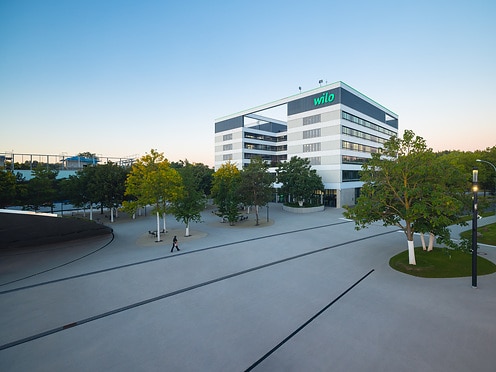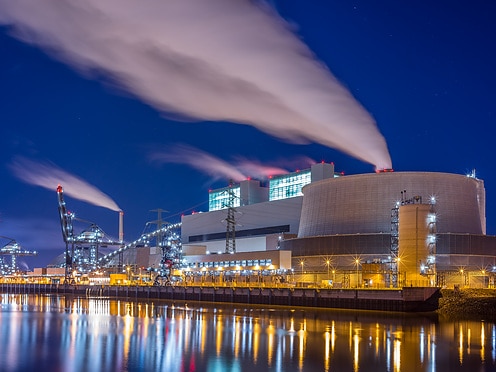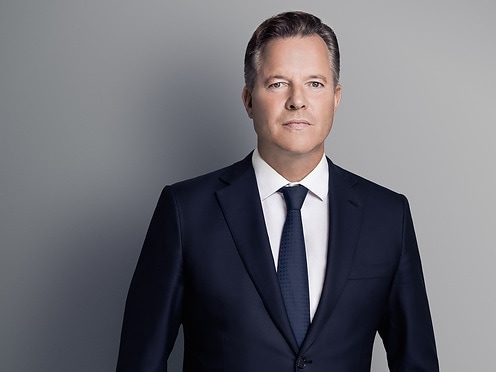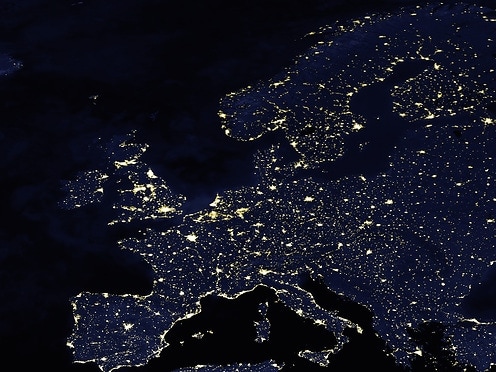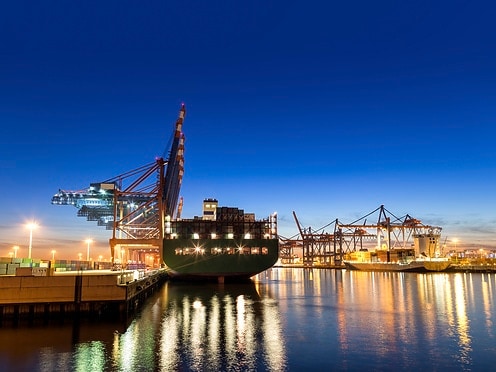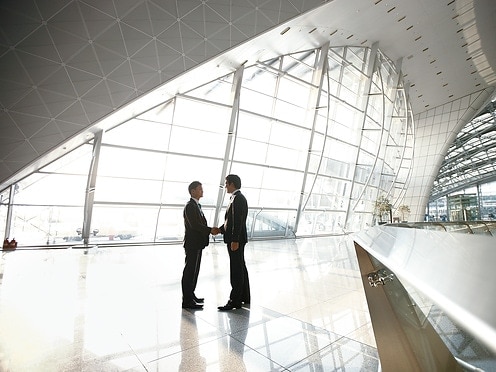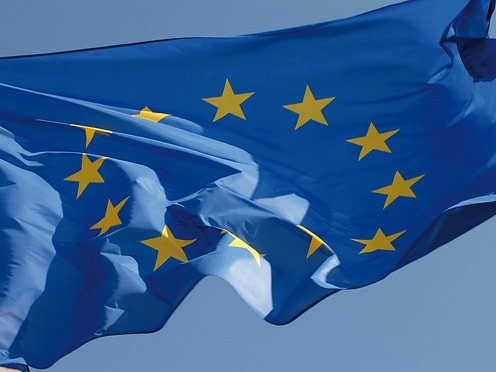Time for a turnaround!
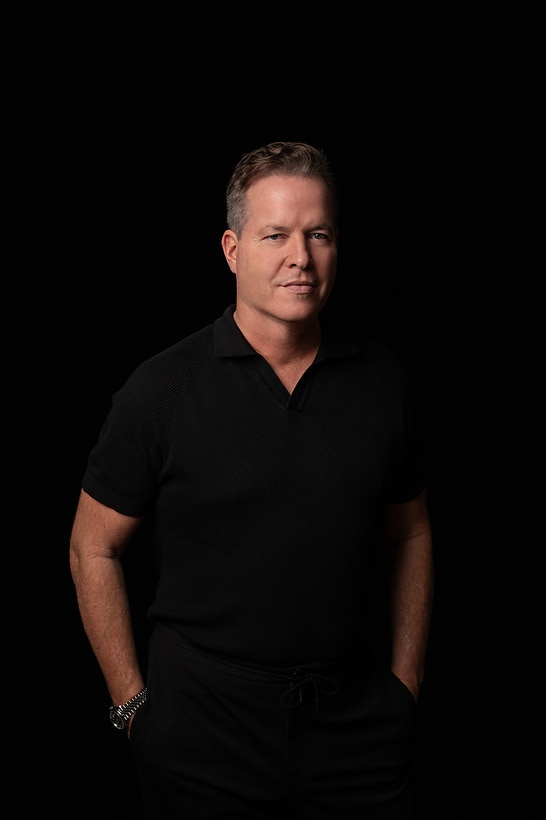
Oliver Hermes, President & CEO of the Wilo Group
A call for a new perspective on global developments.
Editorial of the 2023 Annual Report
Ladies and Gentlemen,
Our world has changed radically in recent years. From the COVID-19 pandemic to Russia’s invasion of Ukraine to the escalating Middle East conflict and the increasingly tangible effects of climate change: What these manifold highly complex crises have in common are their far-reaching consequences beyond the directly affected societies or economic systems and the lack of quick and easy solutions.
Nevertheless, the Wilo Group continued on its sustainable, profitable growth path in 2023. Although generale conomic conditions worsened over the course of the year, we generated net sales of around EUR 2 billion and operating earnings before interest, taxes, depreciation and amortisation (EBITDA) of EUR 217 million in the past financial year.
We thus achieved another record for net sales and earnings in 2023. This excellent development is due firstly to the tireless efforts of our approximately 9,000 employees, who work every day to make our multinational technology group Wilo successful.
Secondly, this success is based on our long-term, progressive corporate strategy and its consistent implementation. This strong strategic framework is part of what makes the Wilo Group an extraordinarily resilient and crisis-proof company today. While our strategy has long been based on five global megatrends, we are now going a decisive step further: In future, we will prioritise our sustainability strategy, and all other functional corporate strategies will be subordinate to it. The Wilo Group is thus once again leading the way as a sustainability pioneer.
The year 2023 was once again characterised globally by the geoeconomic turnaround that we are currently experiencing as a direct consequence of the omnipresent geopolitical turnaround. Old alliances are crumbling and multinational collaborations are having to readjust. “Decoupling” and “diversification” are the order of the day: Protectionist instruments – such as trade barriers, sanctions and technology embargoes – are the result of politically driven decoupling and diversification of supply chains, with the extremely challenging goal of restructuring them.
Who is the loser of the geoeconomic turnaround?
In a phase of hyper-globalisation, the industrialised countries of the Global North intertwined themselvese conomically with the countries of the Global South .What followed this intertwining, which lasted around 30 years, was nothing less than a political paradigm shift: Ideas like nearshoring and friendshoring are intended to bring value creation back to the domestic realms of the Global North.
If the Global North reduces its involvement in the Global South, the consequences would be obvious. The North secures its critical infrastructure, while the South is thrown back into a pre-globalised economic order. The North benefits from the geoeconomic turnaround, the South bears the consequences. In short: The North wins, the South loses.
Really?
Of course, geoeconomic correlations are not that easy to explain. The hyper-globalisation of the past decades cannot be easily reversed. And in the political sphere, it is often forgotten that there can never be an “end-to-end” independence of national economies with complex systems. So it is no surprise that the politically motivated readjustment of supply chains is not having the desired effect. On closer inspection, there are huge gaps between aspiration and reality.
One example is the supply bottlenecks in the sourcing of medical and pharmaceutical products in Europe. The aim was to eliminate shortages of critical goods and fill gaps in procurement or our own production.To this day, availability is still not guaranteed for some important products. Instead, there are still considerable dependencies: Around 70 percent of all medicines produced in Europe contain active ingredients from China – a country which, incidentally, is by definition part of the Global South, although it certainly occupies a special position within it.
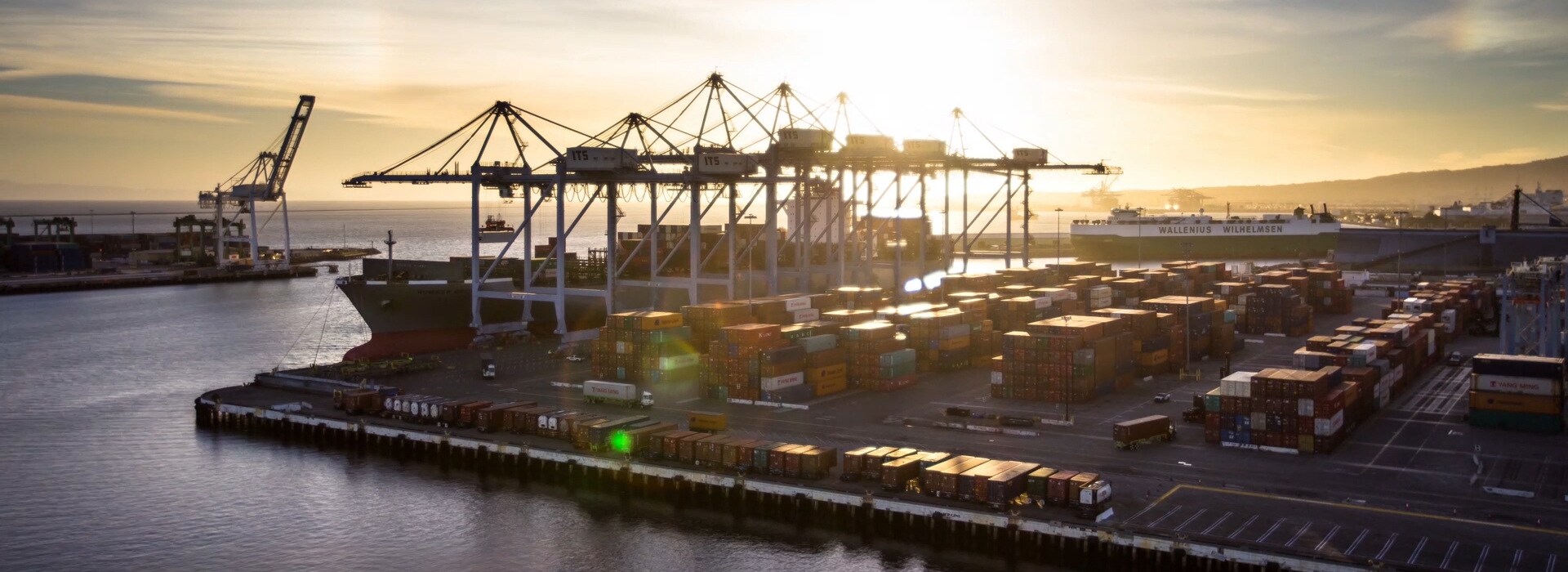
The discrepancy between political desire and reality is particularly noticeable in the procurement of raw materials. Here too, China – as the world’s largest producer of rare earths – is in a strong position. It is estimated that around a third of the world’s reserves are found in China. These metals are needed for almost every hightech product. This makes the whole world dependent on the People’s Republic to an almost insurmountable extent – especially the high-tech Global North, which is facing challenges such as the mobility transition.
Instead of the secure supply of critical infrastructure and greater independence, the Global North is experiencing a new, long-term crisis: It is emerging from various sources, for instance the World Investment Report 2023 published by the United Nations, that foreign direct investment in North America, and Europe especially, is in decline and shifting to the Global South. A textbook example of this can be seen in the deterioration in Germany, where the spectre of de-industrialisation has long been looming.
These example show clearly that the Global North is already the loser of the geoeconomic turnaround. The security of critical infrastructure is just as elusive as the independence of supply chains. The Global North should devote much more attention to its attractiveness as a location for investors. After all, its goal of securing critical infrastructure and being resilient and independent can only be achieved if it has its own key industries.
So is the Global South the winner of the geoeconomic turnaround? In fact, there are several reasons to believe that the countries of the southern hemisphere will not be thrown back into a pre-globalised, as insinuated earlier, but will experience a genuine revival. This is exemplified by the BRICS and BRICS plus alliance in which several countries of the Global South and Russia have organised themselves to jointly represent their interests.
Why is the Global South the long-term winner of the geoeconomic turnaround?
It is clear that the rise of the Global South cannot be slowed by the spread of protectionism. This assumption is based on the global megatrends. The Wilo Group has defined five of these as particularly relevant as part of its strategic long-term planning: urbanisation, water shortage, globalisation 2.0, climate change and energy shortage. Digital transformation is a key factor in dealing with the challenges posed by the megatrends.
Three examples illustrate particularly well that the megatrends have a different impact in the Global South than in the Global North.

Climate change is probably one of the greatest challenges of our time and is a global task. However, the industrialised countries of the Global North bear the main responsibility for global warming. A study by the University of Leeds even came to the conclusion that the North would have to pay the South USD 170 trillion if it wanted to compensate financially for its excessive emissions. The Global South is bearing the brunt of the fight against climate change. Take Jakarta, for example: The capital of Indonesia is already partially below sea level, which will continue to rise in the coming years. In view of this development, the government of the island state has decided to build a new capital: Nusantara. A megaproject in which the planners have consistently focussed on sustainability and smart infrastructure right from the outset. I am therefore delighted that Wilo will also be contributing to the development of Nusantara. In a letter of intent, we have agreed on strategic cooperation with the Indonesian government.

Urbanisation is on the advance. When you consider that around 80 percent of the world’s population lives in the Global South, the extent of urbanisation in the countries of the southern hemisphere quickly becomes clear. To date, the United Nations counts 33 cities worldwide with more than 10 million inhabitants. By 2050, another 14 cities will have broken past this mark – and only two of them are in the Global North. To meet the demand for urban space, at least eleven large-scale planned cities will be built worldwide in the coming years and decades, including the aforementioned Nusantara in Indonesia as well as Neom in Saudi Arabia, Tashkent New City in Uzbekistan and Alatau in Kazakhstan. Almost all of these “future cities” can be found in the Global South and stand for visionary, courageous concepts that are sorely lacking in the Global North. Wilo will make a significant contribution here, too: It is already clear that we will be supplying many of these projects with products, systems and solutions. Our expertise is in great demand.
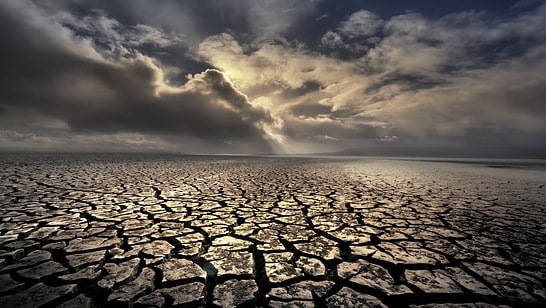
The water shortage is also worsening. According to UNICEF, 450 million children are already living in areas with a high or extremely high level of water insecurity. This is equivalent to one in five children worldwide. In ten African countries, 190 million children are particularly at risk because they have an inadequate supply of water, sanitation and hygiene (WASH), a high burden of diseases caused by dirty water, and high risks due to climate change. Water shortage also has consequences for food security, as a functioning agricultural sector depends on water. Egypt proves that the Global South is capable of tackling these problems with innovative large-scale projects: The Toshka project aims to make a total of one million hectares of desert usable for agriculture. In this way, the North African country is significantly improving its water and food supply and making itself more independent. Almost 400 high-efficiency Wilo split case pumps are being used in this unprecedented project.
So is the Global South the winner of the geoeconomic turnaround – despite the huge challenges associated with the megatrends? In fact, it is probably precisely because of the megatrends that it is on course for historic success.
Of course, the megatrends will not only bring increased prosperity to the inhabitants of the countries in the Global South. As a result of the water shortage in Africa, for example, millions of people are suffering. But for the countries concerned, the megatrends as a whole bring unprecedented dynamics. They are increasingly turning the countries of the southern hemisphere into active players on the economic and political stage of a multipolar world.
Large-scale projects such as Toshka and Nusantara not only revitalise regional economies, but also provide modern living, working and social spaces. In addition, there are locational advantages over the Global North, such as better availability of skilled labour, a higher abundance of natural resources and fewer regulations.
In the context of the geoeconomic turnaround, old alliances are crumbling and new multinational cooperations are emerging. The Global South has the unique opportunity to help shape the transformation in its favour and to secure its independence and influence in the long term. We can be sure that it will seize this opportunity.
What does this development mean for the Global North?
It is obvious that this process of change will prompt decision-makers in the Global North to rethink their approach. A different view of the Global South is urgently needed.
Instead of a policy that divides the world into “good” and “evil”, the Global North, and above all Europe, must now put its own house in order and ensure that its economic and industrial base is not destroyed, which could lead to a dramatic loss of prosperity.
In the long term, however, we must see the countries of Africa, Asia and South America as independent players in the global economy. They have their own interests, which they will assert confidently. Partnerships on an equal footing are needed between the countries of the North and South in which the interests of the other side are taken seriously.
The Wilo Group strengthened its global network in 2023
The Wilo Group has long been strongly represented in the countries of the Global South. We used the year 2023 to significantly expand our commitment once again and to network market partners from the North and South more tightly.
In May, for example, we organised a business conference entitled “Building Bridges – Africa”. Together with around 100 guests, we focused on the potential of the emerging continent of Africa as part of this event. We invested heavily in the implementation of our “region-for-region” strategy again in 2023. In July, we broke ground for the expansion of our plantin Dubai (UAE) and opened our expanded regional hub in Nairobi (Kenya). In August and September, we celebrated the opening of two state-of-the-art, hightech production sites in Kesurdi (India) and Changzhou (China).
The Wilo Industry Conference 2023 took place in one of the smartest and most sustainable cities in the world. In Singapore, together with our high-ranking guests from business, politics, science and society, we explored the role smart urban areas will play in the world of tomorrow.
For the first time ever, Wilo and the German Sustainability Award Foundation awarded the International German Sustainability Award (Internationaler Deutscher Nachhaltigkeitspreis – IDNP) in November. The award recognises partnerships between German companies and those based in the Global South.
We took part in the 28th United Nations Climate Change Conference, COP28, in December. At the COP28 in Dubai, we drew particular attention to the need for sustainable water management.
On 15 December, we celebrated a real milestone in Wilo’s commitment to sustainability. A groundbreaking ceremony marked the start of the construction of an innovative health centre at the Wilopark. The Health Cube will be the new focal point of our global health management.
The year 2023 was once again characterised by multiple crises and complex geopolitical and geoeconomic developments. The Wilo Group’s business development this year shows once again that the consistent implementation of a strong strategy and – now more than ever – multilateral actions are required. Those who build bridges, change perspectives and drive long-term and sustainable innovation will also be able to navigate safety through challenging times in the future. At the Wilo Group, we are very well prepared for this.
Yours,
Oliver Hermes
President & CEO of the Wilo Group
